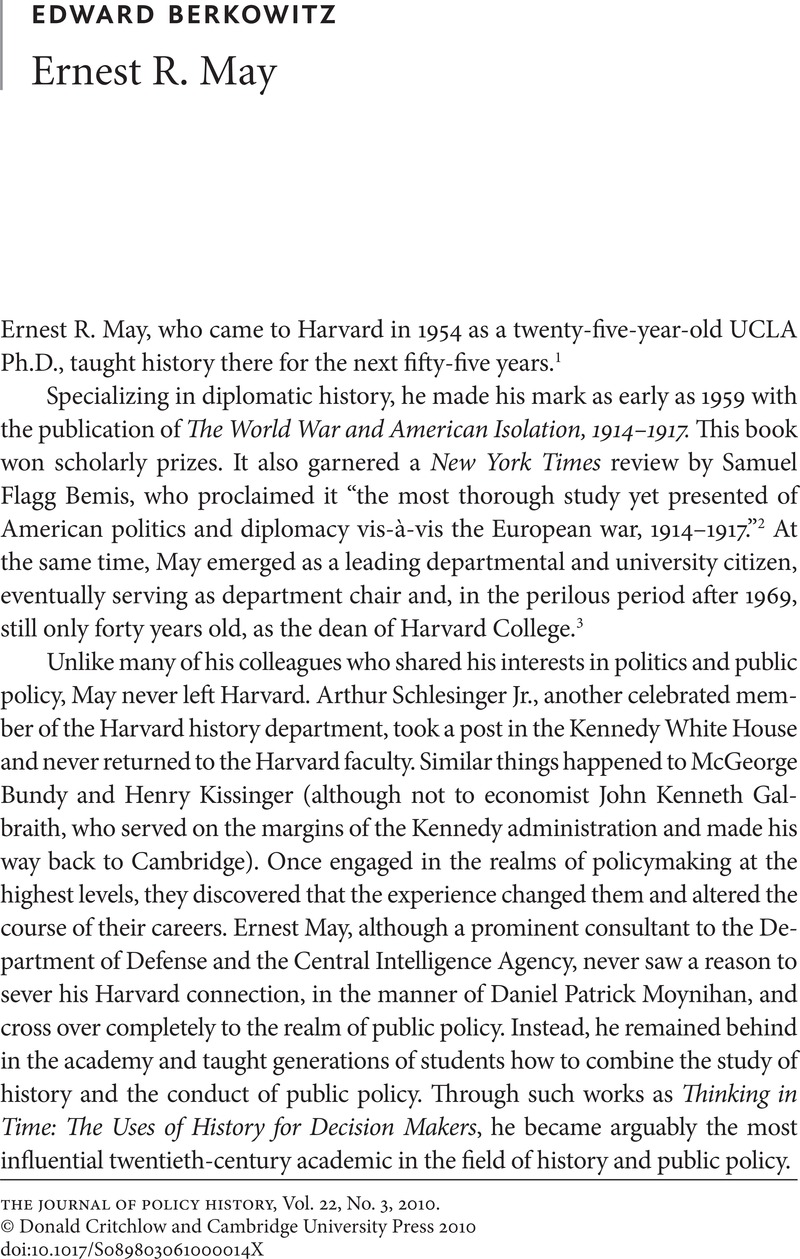No CrossRef data available.
Article contents
Ernest R. May
Published online by Cambridge University Press: 24 June 2010
Abstract

- Type
- Pathbreakers
- Information
- Copyright
- Copyright © Donald Critchlow and Cambridge University Press 2010
References
NOTES
1. Remington, Alexander F., “Harvard Historian Advised 9/11 Panel,” Washington Post, 11 June 2009Google Scholar.
2. Bemis, Samuel Flagg, “Maneuvers for Peace Before the Yanks Went Over There,” New York Times, 25 January 1959, p. BR3Google Scholar.
3. “Authority on Diplomatic History Named Harvard College’s Dean,” New York Times, 24 August 1969, 71Google Scholar.
4. The Ultimate Decision: The President as Commander in Chief, edited and with an introduction by May, Ernest R. (New York, 1959)Google Scholar; May, , American Imperialism: A Speculative Essay (Boston, 1968)Google Scholar. Interestingly enough, May’s book on the president appeared at the same time as Neustadt’s, RichardPresidential Power (New York, 1960)Google Scholar.
5. Aviel Roshwald, Professor of History, Georgetown University, in “Ernest R. May 1929–2009: An Appreciation.” on the National Security Archive Web site, http://www.gwu.edu.edu/~nsarchiv/NSAEBB/NSEBB277/index.htm. (Accessed 1 March 2010).
6. May, , The Making of the Monroe Doctrine (Cambridge, Mass., 1975), 115CrossRefGoogle Scholar.
7. Poore, Charles, “Books of the Times,” New York Times, 8 December 1960, 33Google Scholar.
8. May, , Making of the Monroe Doctrine, 257Google Scholar.
9. May, , “Lessons” of the Past: The Use and Misuse of History in American Foreign Policy (New York, 1973)Google Scholar, 7.
10. Ibid., 30.
11. Ibid., 51.
12. Ibid., 121.
13. Neustadt, Richard E. and May, Ernest R., Thinking in Time: The Uses of History for Decision Makers (New York, 1986)Google Scholar.
14. Ibid., 80.
15. Ibid., 16, 113.
16. I am not a completely disinterested party here, since I have written on this topic. See Berkowitz, Edward D., Robert Ball and the Politics of Social Security (Madison, 2003)Google Scholar.
17. May, , Strange Victory: Hitler’s Conquest of France (New York, 2000), 449, 453Google Scholar.
18. May, , “When Government Writes History: A Memoir of the 9/11 Commission,” The New Republic, 23 May 2005, 30–35Google Scholar.




